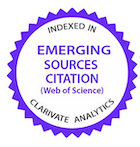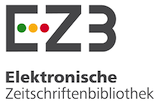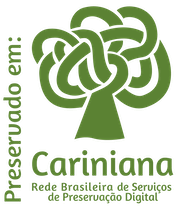Uso de diluentes e temperaturas alternativas na conservação prolongada do sêmen do varrão
DOI:
https://doi.org/10.1590/1089-6891v17i118885Palavras-chave:
Leite desnatado, água de coco, conservação, sêmen suíno, varrãoResumo
O uso de diluentes adequados é importante para o sucesso de um programa de inseminação artificial. O objetivo deste experimento foi avaliar a eficiência de diluentes alternativos para o sêmen suíno, em diferentes temperaturas (17 e 10 °C). Foram utilizados os diluentes: Beltsville Thawing Solution (BTS); água de coco em pó (ACP®-103) e leite em pó desnatado (LPD). Os 50 ejaculados, foram analisados in natura e após diluição, diariamente, durante os 5 dias de conservação do sêmen (D0 a D4), quanto ao vigor e motilidade espermática. Avaliou-se a integridade do acrossoma e a viabilidade espermática no D0 e D4. Na análise estatística, foram utilizados os testes de Mann-Whitney, Students, Tukey e o qui-quadrado, com intervalo de confiança de 5%. O diluente LPD a 10 °C apresentou motilidade e vigor espermático melhores em relação ao BTS e ACP (10 °C) até D2 e aos tratamentos conservados a 17 °C. A vitalidade e integridade acrossomal, no D0 e D4, foram melhores com LPD a 10 °C, que mostrou ser um bom meio diluente para o sêmen suíno em temperatura mais baixa (10°C), conferindo uma maior proteção à célula espermática, através de maiores taxas de viabilidade e
integridade de acrossoma.
Palavras-chave: água de coco; conservação; leite desnatado; sêmen; varrão.
Downloads
Publicado
Como Citar
Edição
Seção
Licença

Este trabalho está licenciado sob uma licença Creative Commons Attribution 4.0 International License.
Autores que publicam nesta revista concordam com os seguintes termos:
- Autores mantém os direitos autorais e concedem à revista o direito de primeira publicação, com o trabalho simultaneamente licenciado sob a Licença Creative Commons Attribution que permite o compartilhamento do trabalho com reconhecimento da autoria e publicação inicial nesta revista.
- Autores têm autorização para assumir contratos adicionais separadamente, para distribuição não-exclusiva da versão do trabalho publicada nesta revista (ex.: publicar em repositório institucional ou como capítulo de livro), com reconhecimento de autoria e publicação inicial nesta revista.
- Autores têm permissão e são estimulados a publicar e distribuir seu trabalho online (ex.: em repositórios institucionais ou na sua página pessoal) a qualquer ponto antes ou durante o processo editorial, já que isso pode gerar alterações produtivas, bem como aumentar o impacto e a citação do trabalho publicado (Veja O Efeito do Acesso Livre).






























